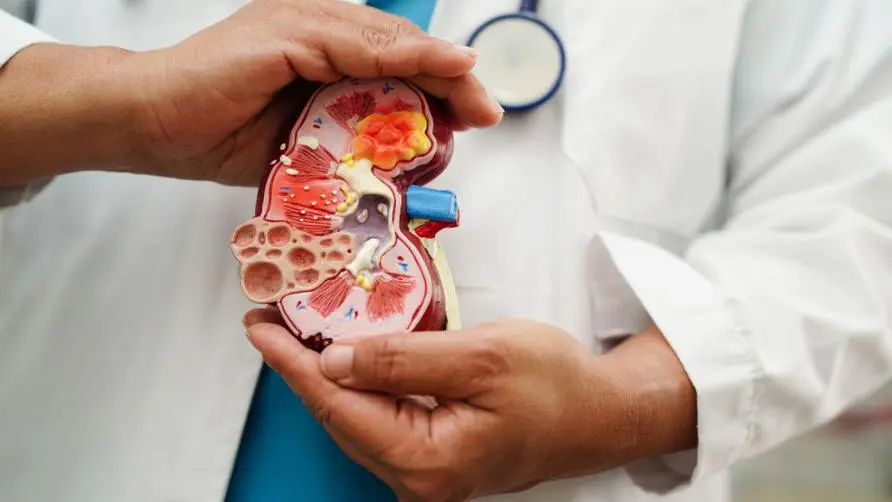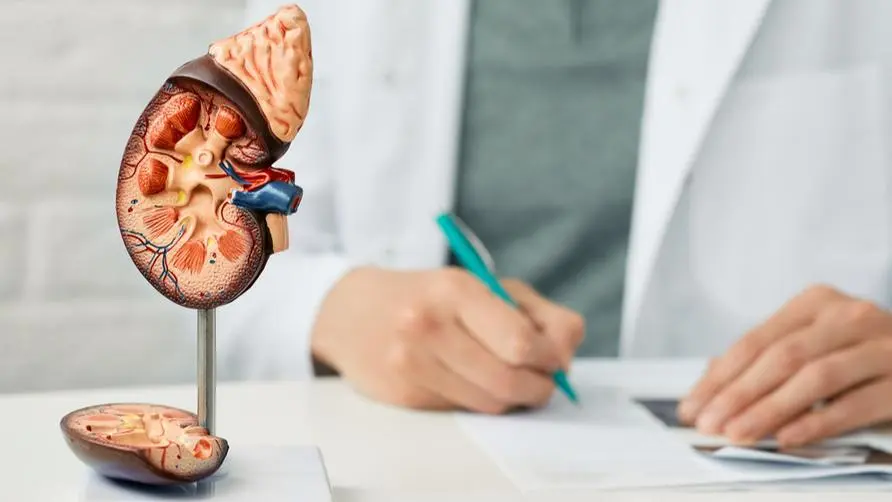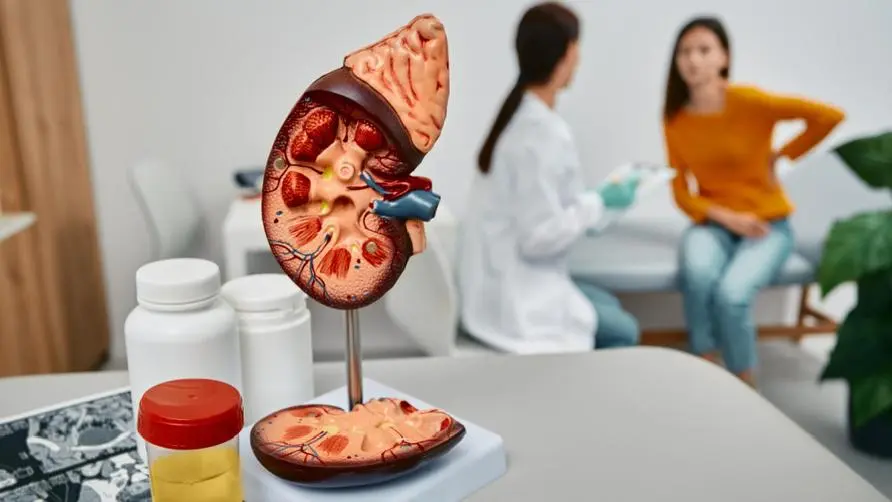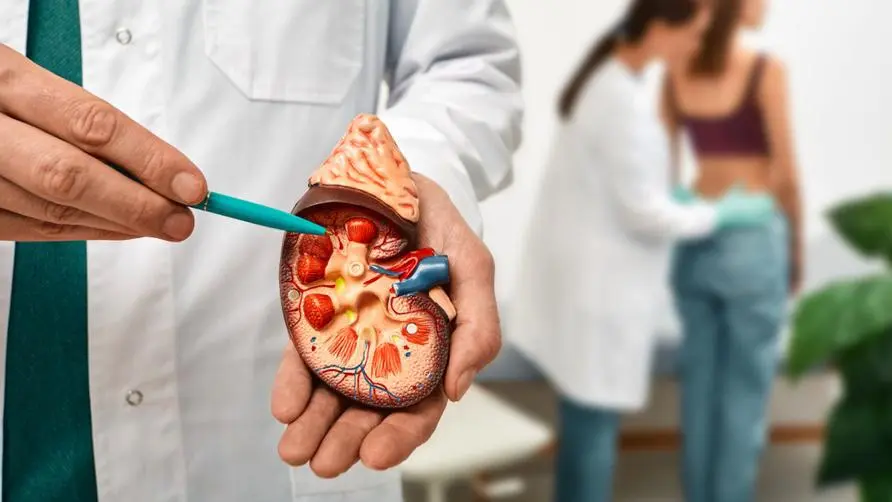Not just taking medicine randomly and causing trouble? 90% of Taiwanese kidney patients don't know it! Medical warning: We are not far away from "chronic kidney disease"

One in eight Taiwanese people has kidney disease! More than 90% of patients don’t know they have the disease?
Medical technology is advancing rapidly, and non-communicable diseases have gradually become a major health threat in civilized countries, especially chronic kidney disease (CKD), which is closely related to high blood pressure, diabetes, and cardiovascular diseases. According to statistics from the “2021 Kidney Disease Annual Report” of the Taiwan Society of Nephrology, the prevalence rate of chronic kidney disease in Taiwan is about 12%, and about 1 in every 8 adults is developing kidney disease. However, more than 90% of patients with early-stage kidney disease do not naturally develop kidney disease. Know. Since there are no obvious symptoms of chronic kidney disease in the early stages, if you wait until obvious uremia-related symptoms appear before seeking medical treatment, you may have missed the golden treatment period.
Taiwan has a high proportion of chronic kidney disease and end-stage renal disease, and was once known as the “Kidney Disease Island.” Dr. Max Wu, chairman of the Kidney Disease Prevention and Treatment Foundation, pointed out that the global average prevalence rate of chronic kidney disease is about 9-10%, which is close to the data in Taiwan. However, the prevalence rate of end-stage kidney disease in Taiwan is about 0.4% of the entire population. It is estimated that the prevalence rate of chronic kidney disease is about 9-10%. More than 90,000 people have end-stage renal disease, which is slightly higher than other countries. This is related to the increase in average life expectancy in Taiwan, an aging society, and the improved survival of chronic patients under the improved health insurance system. Looking to the future, Taiwanese people’s awareness of early-stage chronic kidney disease should be improved, including regular screening of kidney function-related data and early and appropriate treatment. This is the way to prevent the silent occurrence of kidney disease.
The function is not only to metabolize waste and water! Why are the kidneys prone to “workload overload”?
In the coordinated operation of all organs of the human body, the kidneys are responsible for cleaning metabolic waste. There are more than one million nephrons in each kidney, and each nephron has the role of removing and reabsorbing waste from blood vessels. Functions of available nutrients. Not only that, the kidneys also maintain the body’s water balance, body fluid electrolyte balance, acid-base balance, and secrete hormones needed by the body to control blood pressure and stimulate blood cell production.
It is worth noting that kidney function will be affected by eating habits and living habits. Dr. Wu Maisi reminds that people who like to eat heavy-flavored diets, suffer from three types of hypertension, and are obese can easily cause “renal hypertension”, which is the phenomenon of “renal hypertension” in the nephron. The renal glomerulus is under too much pressure for a long time, which can easily lead to a decline in the overall function of the kidneys. The kidneys, which lack pain-sensing nerves, are most of the time “silent organs”, silently bearing the pressure and actively compensating for various metabolic tasks of the body. Even before kidney function drops by 50%, patients often have no obvious symptoms of kidney disease, causing damage to continue to occur. .
What are the symptoms of chronic kidney disease? Doctor: Once the “5 major warning signs” appear, it may be terminal
Dr. Wu Maisi explained that once the five major symptoms of kidney disease such as “bubbles, water, high blood pressure, poverty, and fatigue” appear, you should seek medical treatment as soon as possible. “Bubble, water, high, poor, and tired” respectively refer to: “bubble urine”, which is bubbles caused by excessive protein in the urine. Decreased kidney function will also lead to poor water regulation, resulting in “edema” , and the function of regulating blood pressure and producing red blood cells decreases, “hypertension” and “anemia” will occur. When the kidney function is imbalanced, the body will obviously feel “tired”, weak, and lack of energy, which will affect the quality of life. When these symptoms appear, it means that kidney damage has entered an irreversible stage.
The public is reminded to pay attention to the status of the kidneys through observation. For example, after urinating, you can pay attention to whether there is foam in the urine. If the foam does not disappear within 30 seconds or lasts for several minutes, further examination is required. In addition, inexplicable anemia, dizziness, edema in the eyelids or lower limbs, as well as long-term fatigue and high blood pressure symptoms. If you have other related risk factors, you should be alert as soon as possible to whether it is a warning sign of chronic kidney disease.
How to prevent chronic kidney disease? 7 major risk groups are advised to get checked early
Dr. Wu Maisi emphasized that before chronic kidney disease develops into end-stage renal disease, patients may not have any symptoms. It is necessary to track kidney function through regular physical examinations to prevent the worsening of kidney disease. In addition, it is also very important to reduce the burden on the kidneys through daily diet and lifestyle. Many people with chronic kidney disease themselves have obesity, diabetes, hypertension or metabolic syndrome. This is fundamentally related to eating habits such as uneven diet and heavy taste. Partially related. To prevent the occurrence of chronic kidney disease, it is recommended to follow the dietary principles of less salt, less oil, and less meat, and maintain a healthy lifestyle such as a balanced diet and appropriate exercise.
In addition, for the sake of health care, many people mistakenly believe in health foods or medicines of unknown origin, which can easily cause kidney damage. Especially if you have chronic diseases or kidney diseases, you must consult a professional medical professional before evaluating whether to use them. Dr. Wu Maisi reminded that statistics show that people at high risk of chronic kidney disease include obesity, diabetics, elderly people over 65 years old, patients with high blood pressure, people who take drugs for a long time, have smoking habits and have related family histories. They can be tracked by regular health examinations. Renal function index. The Taiwan Health Promotion Administration provides free preventive health check-ups once every three years for people aged 40-64 and once a year for people over 65 years old. It is recommended that people take advantage of this.
Source:
stay away from kidney disease, controlling the three highs is the key!





